Nigeria's new president scraps fuel subsidy
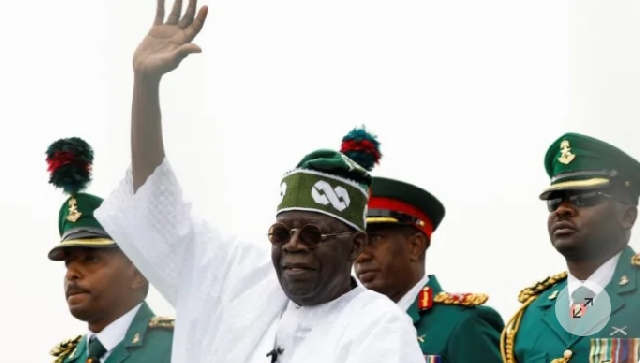 Bola Tinubu won February's election with 37% of the vote, a victory that is being challenged in court
Bola Tinubu won February's election with 37% of the vote, a victory that is being challenged in court
The new president of Africa's largest democracy, Nigeria, has used his inaugural address to make a major policy announcement to ease pressure on government finances.
Bola Tinubu said the decades-long subsidy on petroleum products was being scrapped.
"Fuel subsidy is gone," he told a packed crowd in the capital, Abuja.
He won disputed elections with a promise to renew hope - but he faces tough economic and security challenges.
It is not clear when the new policy will kick in, but ending the subsidy will lead to a rise in the price of petrol and could have a knock on effect on other prices.
Previous Nigerian governments have tried and failed to end the subsidy that was first introduced in the 1970s.
Despite its oil wealth, Nigeria is unable to refine enough crude to meet local demands so it imports petroleum products, which are then sold at a government-set price.
But the subsidy is a huge drain on public finances. Last year it gulped 4.3trn naira ($9.3bn; £7.5bn) and for the first half of this year, 3.36trn naira was budgeted for it.
The new president said the subsidy could no longer be justified and that the funds would instead be spent on public infrastructure and to improve the lives of people.
Mr Tinubu, 71, takes over from Muhammadu Buhari, who has stepped down at the end of his two terms.
He is under pressure to tackle the economic crisis.
Inflation is running at its highest rate for nearly 18 years, one in three people are unemployed and the output of the vital oil industry is shrinking.
Mr Tinubu acknowledged these challenges in his speech, saying his team would release its economic roadmap in the coming weeks but pointed out that interest rates were too high.
He won the election in February with 37% of the vote. His main rival Atiku Abubakar polled 29%, and Labour's Peter Obi 25%.
Mr Tinubu's victory is being challenged in court by the two opposition candidates.
They say the outcome was manipulated.
But Mr Tinubu said he was "spreading his hand across the political divide", and described the election as hard-fought and of a better quality than previous ones.
He also said that women and young people would feature prominently in his administration and hinted at employing more security personnel to tackle the security crisis, which includes kidnappings for ransom.
As a former governor of Lagos, he revitalised Nigeria's commercial hub - no easy job - and his allies say he will take the same technocratic and thoughtful approach to running the vast country of more than 200 million people.
But opponents of the new president say he has lost the vitality he used to forcefully modernise Lagos.
Since the election he has travelled abroad twice, raising questions about his health. In 2021 he spent months in London being treated for an undisclosed illness.
He has brushed off the criticism, saying the job does not require the fitness of an Olympic athlete - and his associates are quick to remind everyone that US President Joe Biden is older, at 80.
But if Mr Abubakar and Mr Obi have their way then Mr Tinubu may not be in power for very long.
The election tribunal is expected to start hearing the main arguments in their case on Tuesday and a ruling should be given within the next six months.
Source: bbc.com
Trending News

Ashanti NDC members protest return of former DVLA regional director
14:24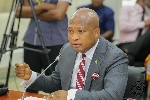
Ghana revokes diplomatic and service passports of former officials and non-state actors
13:12
MP for Awutu Senya West supports 53 tertiary students with scholarships
11:49
Defence Minister commends Erastus Asare Donkor for anti-galamsey reporting
01:03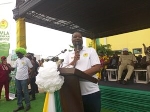
DVLA to open six overseas offices to help curb fake Ghanaian licences abroad
11:54
Supreme Court dismisses injunction application against President Mahama in Chief Justice case
12:41
GA/R: Tragic fire claims life of 5-year-old girl at Adjei Kojo Sancity
11:36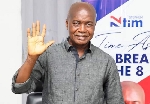
National Chairman is attending to some urgent issues in Accra, he will join the tour after that - Justin Kodua
00:19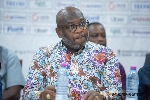
COCOBOD CEO urges return to core mandate of funding cocoa
11:28
Sam George throws shade at Afenyo-Markin over police assault claims
12:21



